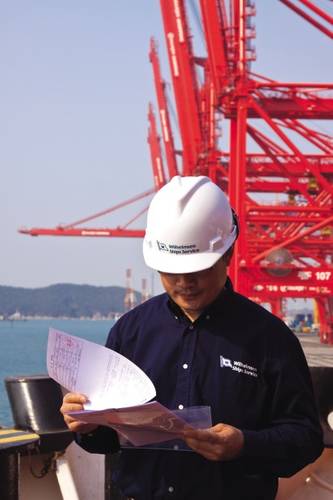Ship operators who rely on a myriad of companies for their global bunkering needs are wasting time, money and energy, with no guarantee of standardized quality of products and services, says Wilhelmsen Ships Service (WSS). In an industry defined by tight margins and cost constraints this approach, WSS believes, is ultimately bad for business.
The global provider of maritime products and services WSS says it offers an alternative, with its global Bunker Service Agreements. These provide shipping firms with peace of mind and uniform quality, as WSS Global Agents lead the process for the customer, ensuring efficient communication, minimized administration and ensuring high standards. Everything is streamlined - with predictable pricing for a clear set of deliverables, and no hidden extra fees.
WSS estimates that there are more than 80,000 bunker-only port calls each year. Although these are relatively simple operational tasks, they come with a complex web of administrative and qualitative considerations, as highlighted by Daniel Wikstroem, Business Manager, Ships Agency, WSS.
“Bunker-only calls can be a real headache for ship operators used to high quality, efficiency and performance driven day-to-day operations,” he states.
“Typical bunker calls include up to 40 lines of communication, between an array of parties – including port agents, bunker brokers and bunker surveyors – up to two separate financial transactions, and an excessive administrative workload checking disbursement accounts. Multiply this on a global level, on a port-by-port basis, and there is huge room for unpredictability – in terms of the complex delivery chain – and a massive man-hour inefficiency. And it goes without saying that time is money.”
Wikstroem adds that every ‘mom and pop’ business, in every port, is different:
“Shipping firms will rely on their bunker brokers, or procurement departments, to select the right fuel supplier, but what information can they themselves access with regards to typical bunkering times? Reliability? Punctuality? Ease of use? These factors make a real difference between a seamless bunkering process and a convoluted, lengthy and therefore costly one. There’s an opaque area here where it’s very easy to lose time and money.”
With this in mind WSS is challenging ship operators to adopt their ‘one stop shop’ strategy. The Norwegian-headquartered business, which took care of more than 4,000 bunker-only calls, at more than 150 ports, in 2015, uses its global network to offer Bunker Service Agreements with consistently high quality services - minimizing delay, while maximizing value and operational performance.
A uniform global bunkering routine ensures that each call runs smoothly, with, among other things: pre-arrival formalities and ISPS requirements completed 24 hours prior to arrival; bunker suppliers, surveyors, port authorities and pilots always given vessel ETA updates; service boats always ready for bunkering surveyors upon arrival, and completion; and a strict following up of all bunkering progress.
Wikstroem says that by switching to the WSS bunkering solution, a typical client performing around 100 annual bunker calls, would save over $20,000 a year through reduced bank transactions and paperless DA handling alone.
In addition, WSS’ worldwide operations allow it to capture and maintain detailed performance records of suppliers, giving it, and its customers, an intimate barge-side knowledge of all bunker operations in all major bunker ports.
“Our completely independent, expert insight can cut through any potential uncertainty relating to suppliers and lead to enhanced decision making… and efficiency,” he says.
On this latter point, Wikstroem is quick to outline the advantages of WSS Global Agents – in-house experts who handle more than 32,000 port calls a year. Each client, he explains, is provided with a Global Agent that becomes their key contact for any matter relating to port calls. This includes facilitating all bunkering communications, arrangements and appointments, along with managing all disbursement accounts and settlements.
He notes, “The days of ad-hoc, port-by-port, call-by-call bookings, and the numerous separate payments, hundreds of emails and hours of phone time to set them up, can happily become a thing of the past.
“What’s more these individuals are backed-up by state-of-the-art technology, with an online workspace where clients can keep check of appointments, DA handling is paperless and all Proforma DA, Revised DA and Final DA requirements are fulfilled. Everything is optimized for simplicity and efficiency.”
This includes payments, with pre-agreed pricing levels, no administration or service fees, and a simple overview covering all bunkering activity, worldwide.
“We want to provide the industry with a better alternative to current bunkering practices,” Wikstroem concludes. “One which is predictable, accountable and transparent, where quality and efficiency of service are paramount. Ship operators across the world are focused on efficient operations and effective cost management – improving bunkering procedures should be absolutely central to that mind-set.”


















